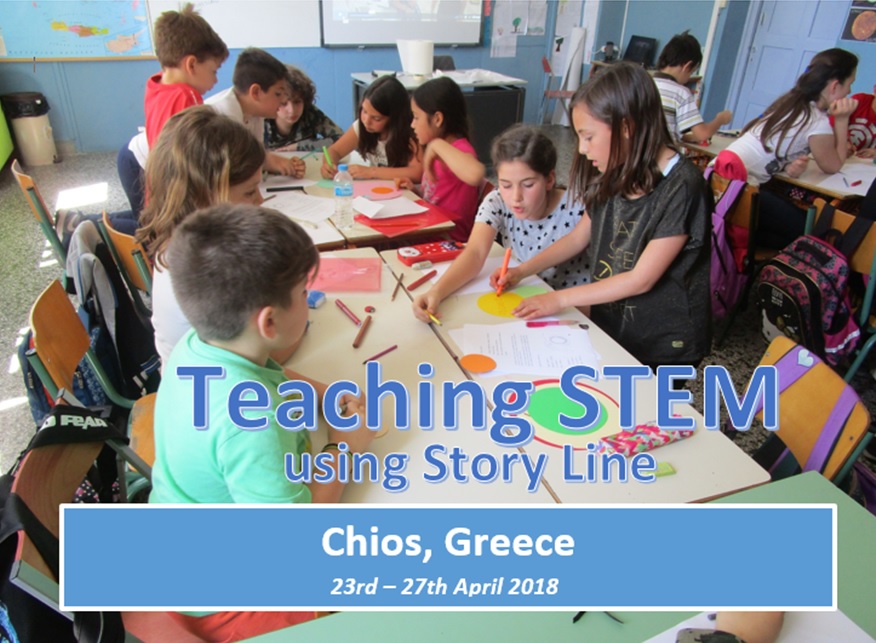
During the last week of April 2018,
the delegates from the schools taking part in the project
"Full STEAM ahead for better education"
went to Chios, Greece to be inspired and learn how to use the "Story Line" method
when teaching STEM subjects.
We were not disappointed.
Our hosts showed us how they used their environment, their history and their legends
as an integrated part of their curriculum using the "Story Line" method.
Local history combined with engaging stories, in which the students played an important role,
put their teaching into a meaningful frame.
Below we invite you to take part in our experiences on this Greek island,
and see how the special nature and history of the island
is used as inspiration for their pedagogical work.
Click the image below to join our Greek adventure
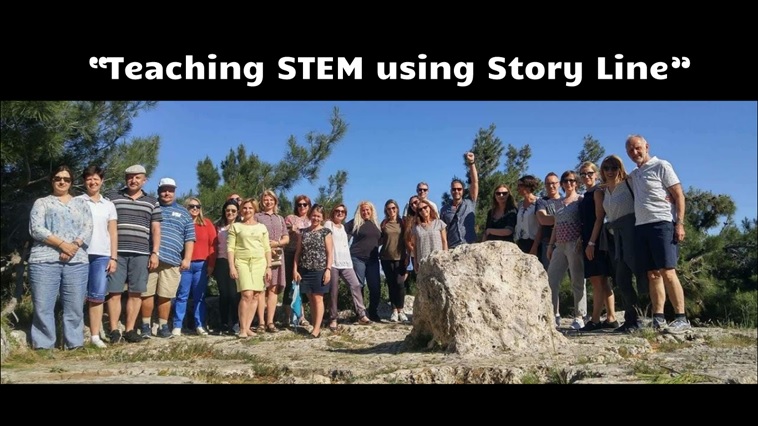
Unfamiliar with "Story Line"?
Read more about what it is HERE.
Workshops:
During the week in Chios our hosts shared a lot of their compentences by showing us how they used their rich history in their teaching, creating great "Story Line" adventures for the students to take part in. Join the workshops by clicking each of them.
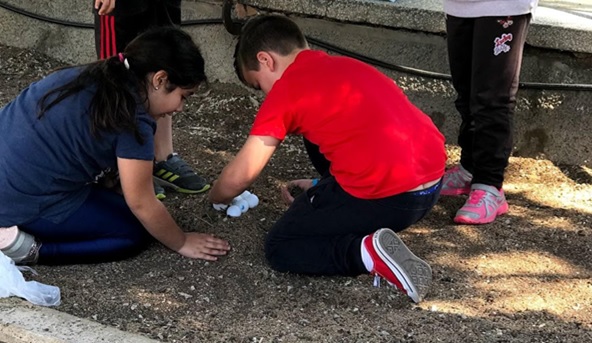 Carie's Adventure
Carie's Adventure
Teacher Sophia says:
"As a teacher I want to motivate my pupils into seeing the usefulness of mathematics in everyday life. I also want my pupils to realize how valuable mathematics is in real-life problem solving. During those lessons, pupils will be in contact with the natural environment, too."
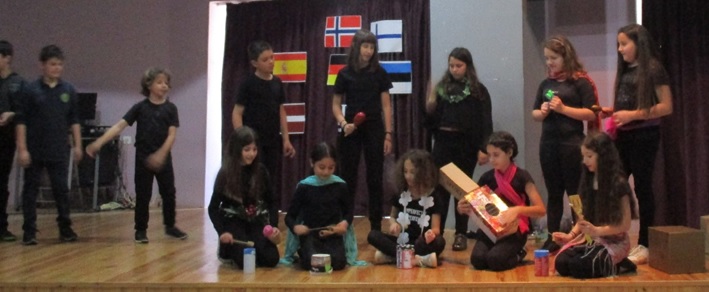 Νatural phenomena through Ulysses’ adventures
Νatural phenomena through Ulysses’ adventures
Teacher Nitsa Klouva says:
"Pupils, according to the storyline, are trying to overcome the obstacles of Ulysses’ wandering, look for, experiment with simple materials, observe, interpret, conclude and in the end they apply their knowledge so that they can reach their
destination, Ithaki. "
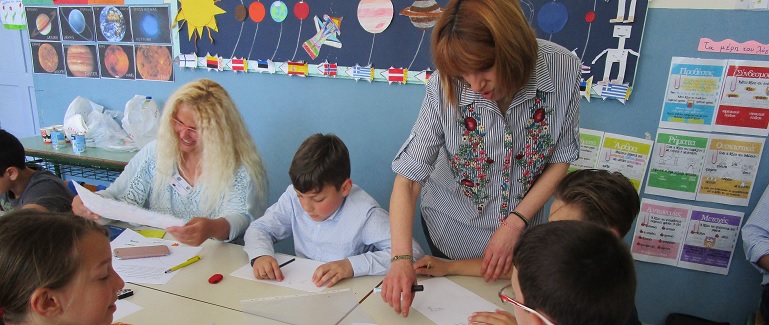 Aquaintance with the solar system
Aquaintance with the solar system
through an imaginary journey in the space
Teacher Helen Kalagia says:
"Through a funny journey young travellers are trying to understand their existence in the vastness of the universe."
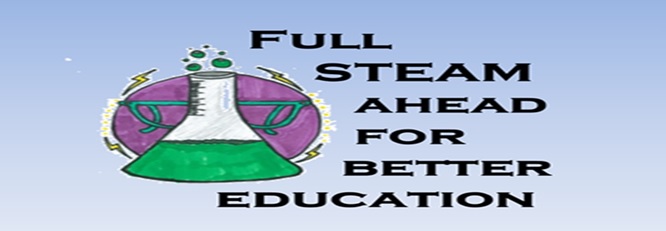 Support of life. Direct flow of water to plants. (Agricultural engineering - plants)
Support of life. Direct flow of water to plants. (Agricultural engineering - plants)
Teacher Stavroula Ampatzi says:
"What is agricultural engineering? How does it help? How do plants help and contribute to the development of life?"
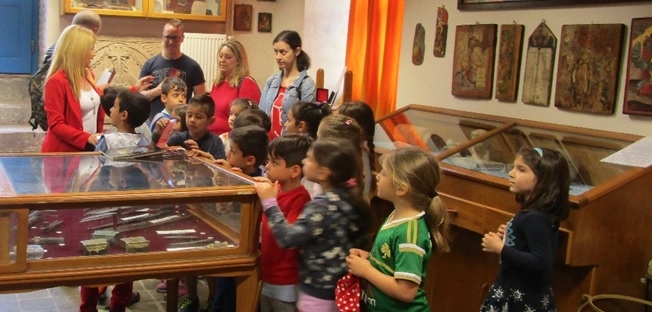 Five envelopes - an interactive fairy-tale
Five envelopes - an interactive fairy-tale
Teacher Despina Gemelou have a riddle to the pupils:
"It heals every wound, it always triumphs, it gives strenght and touches every heart. What is is?"
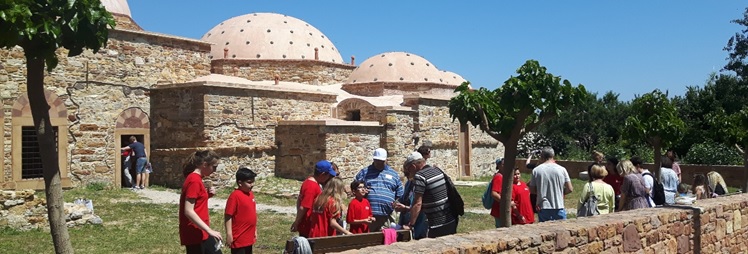 The secrets of the town castle
The secrets of the town castle
Teacher Artemi Andrianaki says:
"Pupils realize that "problems" are solved even without paper and pencil. Also, life itself seeks application of knowlwdge in order to move on to new knowlwdge."
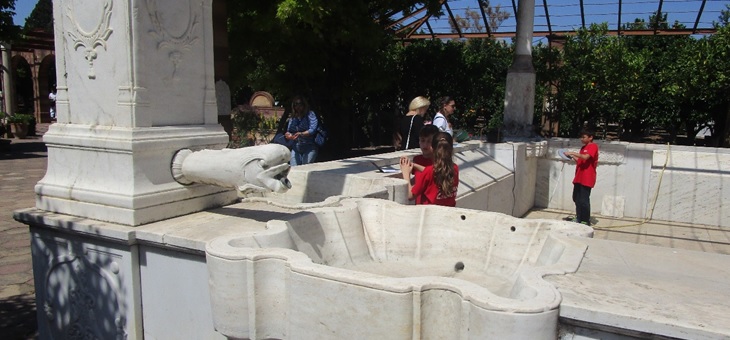 When the wheel spins....
When the wheel spins....
Teacher Vorria Matula says:
"The pupils become acquainted with basic mathematical principles and how people have made good use of these principles in their everyday life. They are also asked to provide solutions to problems"
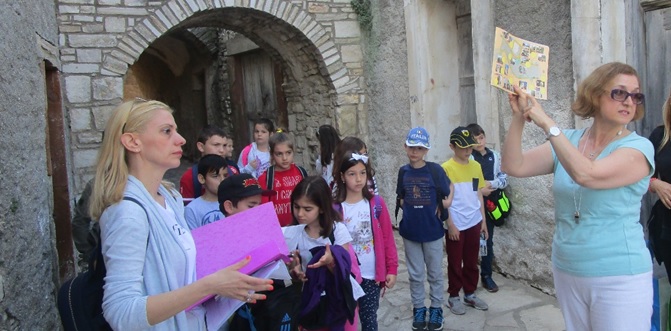 Constructing a thematic map on the field
Constructing a thematic map on the field
Teacher Theodora Tsegenidou says:
"The pupils experience the joy og working together, exploring and finally building their own thematic map."
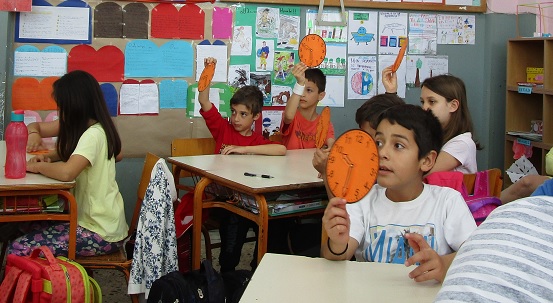 Teaching the time and a Math Bingo
Teaching the time and a Math Bingo
Teacher Irene Toulampi says:
"Pupils combine maths with English vocabulary. They think strategies to correspond the order with the result learning the English terminology in maths."
 Karagiozis' May Day
Karagiozis' May Day
Teacher Efi Ksila says:
"Pupils assumed the reasons why different kinds of plants grow in different places."
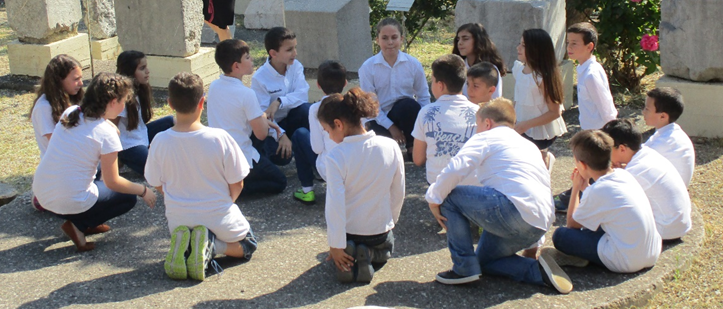 Museum - an alive place for action and teaching
Museum - an alive place for action and teaching
Teacher Eleni Bougdanou says:
"Starting off with science we get to know a part of history, civilization and geography."